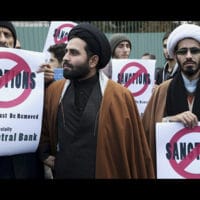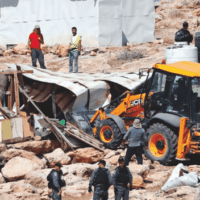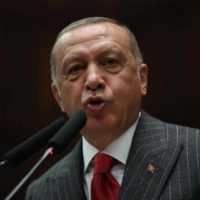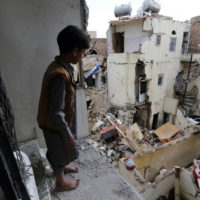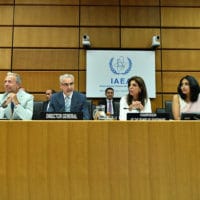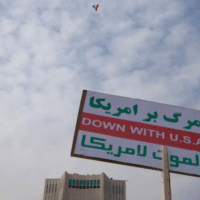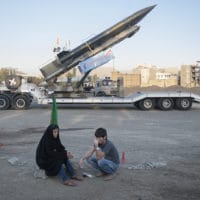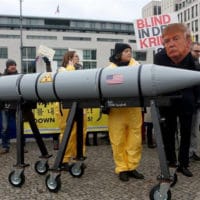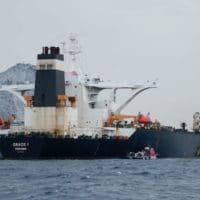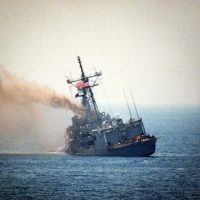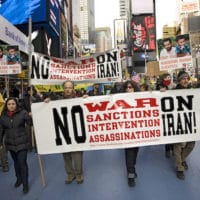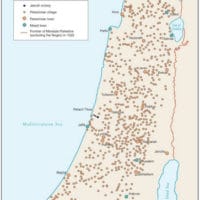-
We thought the house was empty
On 13 November 2019, as part of its deadly attack on the people of Gaza, Israeli armed forces bombed a building in the Deir al-Balah neighbourhood of Gaza City.
-
Media silent as Nobel Prize winning OPCW found “fixing” its own findings on Syria
Judging by the minimal impact of the news, there will likely be few consequences for those who suppressed information and misled the world, nor for those who called for war on the basis of it, their assertions proving, once again, disastrously wrong.
-
How U.S. sanctions on Iran are killing innocent people
It is a measure of the fortitude of Iran that—despite these unilateral U.S. sanctions—it has been able to maintain production of medical equipment and drugs. Nonetheless, the Human Rights Watch report should be seen as an alarm.
-
Bedouin mass eviction – Israel to drive Palestinians off their historic lands
Last week 36,000 Bedouin–all of them Israeli citizens–discovered that their state is about to make them refugees in their own country, driving them into holding camps. These Israelis, it seems, are the wrong kind.
-
Syria: exposing western radical collaboration with imperialism
Western radicals must take a consistent anti-imperialist position despite the internal contradictions or problems that exist within a state in the Global South.
-
What to expect from Turkey’s coming invasion of Syria
Erdogan’s government is preparing to enter Syria for a major military operation against the Syrian Democratic Forces (SDF), which is made up largely of Kurdish factions who set up this armed force to defend the mainly Kurdish enclave in northern Syria.
-
Education Dept says Middle East Studies program has to advance the security interests of the United States in order to receive further funding
The U.S. Department of Education has determined the Duke-University of North Carolina Consortium for Middle East Studies misused Title VI funds and they’re requiring the program to provide a revised list of activities that will use these funds over the coming year.
-
How can Sweden be a peace broker for the war in Yemen if it’s also selling the arms that make it possible?
Sweden might have some credibility if it banned weapons sales to Saudi Arabia and the UAE. It is not enough to be moved by the tragedy in Yemen. Action is necessary.
-
Why the world is watching the fate of an Iranian tanker in the Mediterranean
The British, it is clear, seized the Iranian tanker at the urging of the United States. There was no previous British warning that it might enter in such a muscular way into the U.S. attempt to suffocate Iran.
-
Imagining a free Palestine should be commonplace—that’s why I wrote the novel ‘Siegebreakers’
The siege of Gaza is crushing the people who live under it, and it is crushing all of our imaginations.
-
There must be bones under the paved street
On 6 August 1945, the United States military dropped a bomb that contained 64kg of uranium-235 over the city of Hiroshima (Japan). The bomb took just over 44 seconds to fall from 9,400 metres and detonated 580 metres above the Shima Surgical Clinic. Over 80,000 people died instantly. This was the first use of the nuclear bomb.
-
Trump’s ‘diplomacy’ in Iran is a cynical farce
The problem for any negotiations is that the U.S. position is untenable. The U.S. wants to prevent Iran from exercising its right under the Nuclear Non-Proliferation Treaty (1968) to enrich uranium even to low levels. It is this impossible position by Washington that will prevent diplomacy.
-
Dossier 19: Iranians will not forget: The hybrid war against Iran
It is impossible to predict what will happen in West Asia. Impossible to know whether the United States will conduct a military strike against Iran, which has already faced the full brunt of a U.S.-driven hybrid war against it for the past seven decades.
-
Iran simply won’t let itself be hemmed in by the U.S. and UK
The United States is leading a process to create a naval force that would patrol the Strait of Hormuz. The U.S. has said it will send “command and control” ships to coordinate the escort naval vessels from different countries. But there are cracks in the coalition.
-
The U.S.-Iran standoff can only end when the U.S. accepts Iran’s right to have a nuclear energy program
The U.S. objection to Iran is not based on international law, but merely based on its political objectives. This is clearly illustrated by open U.S. support for nuclear energy and nuclear weapon development in India; and nuclear weapon stockpiling in Israel, which the U.S. has always fully backed.
-
Hubris before the fall
Hubris is usually a forewarning of impending calamity. Extreme arrogance blinds the hubristic person to the limits of their power. So, blindly, they push on with reckless excess, leading to potentially disastrous results.
-
The UK’s dubious role in the new tanker war with Iran
There are signs of a new tanker war in the Persian Gulf, with Britain joining a coalition that wants a war with Iran.
-
Should universities care about the truth?
Those with responsibility for the strategic direction of universities have a clear choice in this matter. They can embrace the funding and accolades that come from saying things the Government and other funders want to hear; or they can do what most ordinary people think universities are supposed to do.
-
Imperial overreach in Iran
In the last week of June 2019, as this article was being written, tensions between the U.S. and Iranian governments escalated sharply. On June 20, 2019, in response to aggressive U.S. actions, including the mobilization of troops, naval forces, and aerial provocations, Iran shot down a U.S. surveillance drone flying near the Iranian border.
-
The promised land
Palestine really was the Promised Land. So much so that it was promised to three different groups within a couple of years.



